#lydia wickham
Text
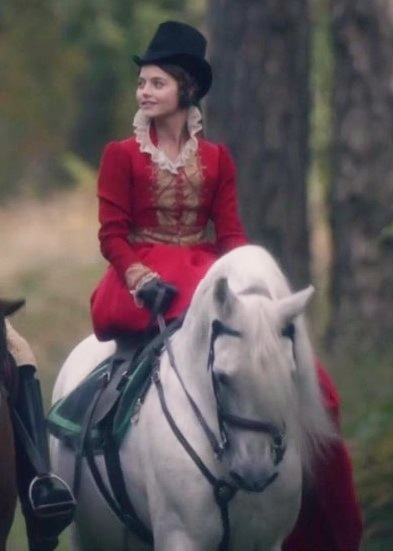

Jenna Coleman wore exactly the same outfit in both Victoria, and Death Comes to Pemberley!
#jenna coleman#jenna louise coleman#victoria#queen victoria#victoria series#death comes to pemberley#lydia wickham
64 notes
·
View notes
Text
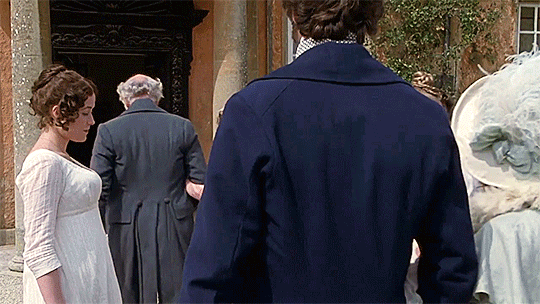



#Pride and Prejudice#P & P 1995#Jane Bennet#Elizabeth Bennet#Lydia Wickham#Wickham#Mary Bennet#Kitty Bennet#Mr Bennet#Mrs Bennet#Jane Austen
79 notes
·
View notes
Text
Mr. Darcy: yeah, i'm single
Mr. Darcy: single handedly destroying my family's expectations
#IT FITS SO WELL#mr. darcy#pride and prejudice#jane austen#elizabeth bennet#jane bennet#mr. bingley#mr. bennet#lydia wickham#mr. wickham#classic novels#classic literature#literature#romance#humor#writing memes#literature memes#book#reading#fanfiction#incorrect quotes#book quotes#darcy x elizabeth#jane x bingley
571 notes
·
View notes
Photo
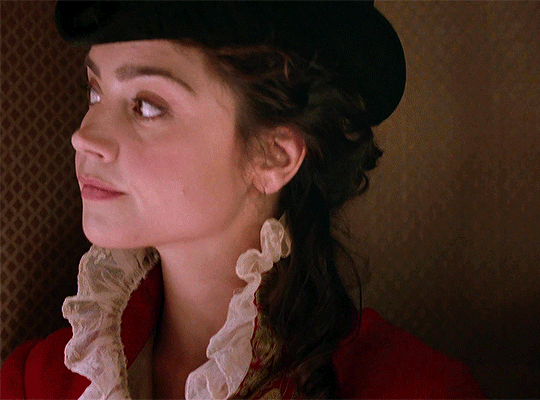


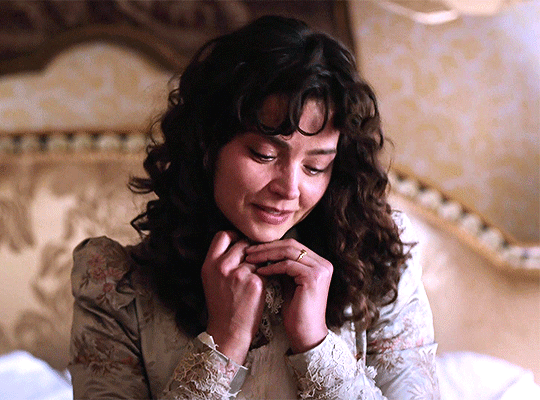

Death Comes to Pemberley: Episode 1/3
JENNA COLEMAN EDITS
83 notes
·
View notes
Text
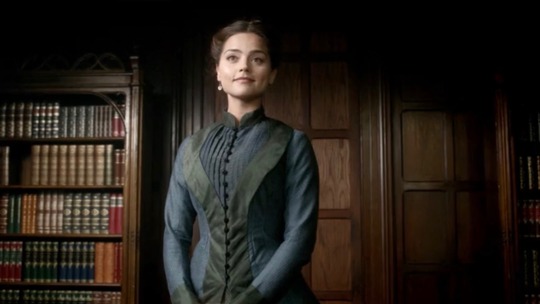

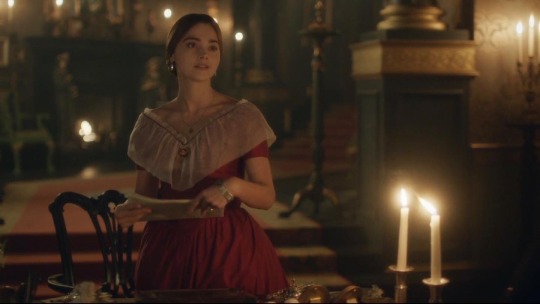



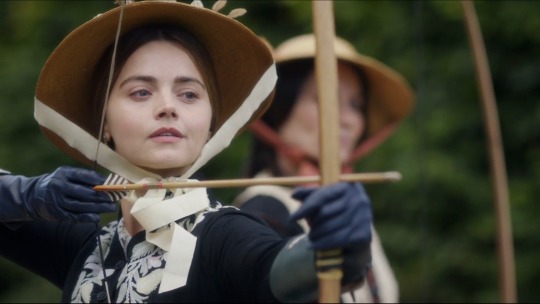

Period outfit Jenna
#jenna coleman#jenna louise coleman#clara oswald#clara oswin#doctor who#victoria#death comes to pemberley#lydia wickham
11 notes
·
View notes
Text
Everyone go listen to Mrs. Wickham now.
#pride and predujice#Lydia#Lydia bennett#Lydia Wickham#lizzie bennett#bennett sisters#y’all#please go#listen#now
3 notes
·
View notes
Text
This is unnecessarily long, but: I was just thinking about Wickham's predation on fifteen-year-old Georgiana Darcy and then, almost exactly a year later, Wickham's predation on sixteen-year-old Lydia Bennet.
There are obvious parallels between the two incidents. In fact, they're so obvious that I think the incidents are sometimes treated as equivalent, with the consequences only differing by happenstance. I don't think that's true, personally.
There are some mechanistic sort of differences—Wickham put a lot more effort and planning into the Georgiana situation. He wanted to marry her for her money and to make her brother suffer. She had to be isolated from people who would look out for her interests, he had Mrs Younge in place, he had known Georgiana as a child and was able to exploit his own previous kindness to her as her father's godson, etc.
And Georgiana, despite all of this, and despite being swept away by a teenage infatuation with an extremely attractive man, was still uncomfortable with it. She was worried about disappointing a brother who raised her and whom she deeply loves and admires. When her brother actually showed up by surprise, she decided to tell him everything; Darcy takes pains to give her credit for this. Adaptations generally downplay Georgiana's active decision-making here, but the only element of chance is Darcy deciding to go to Ramsgate at all. He insists that he was only able to act because Georgiana chose to tell him what was going on.
This isn't meant to be an indictment of Lydia, though. Does she admire the parents who raised her? No. But why would she? Especially why would she admire a father who treats her mother and sisters and herself with profound contempt and no sense of responsibility? Why would she ever confide in him?
It's not like Lydia doesn't confide in anyone. In fact, she too confides in an older sibling, her sister Kitty. And in one sense, her trust in Kitty is not undeserved. Kitty does keep the secret. Presumably, she does this because, despite her occasional annoyance with Lydia, she is very much under her influence and goes along with whatever Lydia does. Regardless, she is trustworthy in that sense. Moreover, we see at the end of the book that Kitty is easily improved by being placed in better environments and taught how to behave. She just didn't know better.
How was she going to judge Lydia's situation correctly? Who was teaching her to judge anything correctly? Certainly not their parents.
If Mr Bennet had bothered to interest himself in his younger daughters and try and influence them for the better, impressionable Kitty is probably the one who would have benefited the most. The whole Lydia/Wickham thing would have fallen apart before it went anywhere if all the girls had been been properly raised, even if Lydia did exactly the same things.
And Lydia likely wouldn't do the same things if she'd been brought up properly and, you know, treated with a baseline of respect rather than being openly mocked by her father, the person most able to affect her development. Instead, at barely sixteen, she's been continually rejected by her father, over-indulged by her mother, and flattered by adult men (28-y-o Darcy says he and Wickham are nearly the same age). And she still tells someone what's going on, even though she doesn't care about her parents' opinions or the consequences of her actions. And she was under the protection of a colonel and his wife at the time, who also could have told someone or acted, and didn't.
It's not that nobody could have done anything about the Lydia/Wickham situation. It's that nobody did until Darcy found out and tried to extract her. But it was, in one sense, too late. To Lydia, he's just some unfun acquaintance who says boring things like "go home to your family and I'll do what I can to cover for you." That is, he tries to do what he did for Georgiana.
But Lydia is not Georgiana—she did not choose to tell him about any of this. She did not want to be extracted because she didn't know and couldn't be quickly made to understand what marriage to Wickham would mean in the long term. And she didn't care what her family thought because she had no reason to, pragmatically or psychologically.
Georgiana, otoh, did care about her family's welfare and the good opinion and affection of the head of her family. But despite their radical differences in personality, the most fundamental difference between the girls IMO is that Georgiana had every reason to believe that disappointing Darcy and losing his respect would be a change from the norm.
Normally he is affectionate and attentive towards her. They write each other long letters, he defends her to other family members, and praises her frequently. Georgiana, quiet and intimidated though she may be, talks more when he's around. Disappointing him had actual stakes for her.
Put another way, the potential loss of his good opinion mattered to her because he's gone to the trouble of raising her as well as he can and forming a good relationship with her. She chose to tell Darcy the whole thing because he had earned her affection and trust in a way that Mr Bennet has utterly failed to do. Even Darcy happening to visit Georgiana at Ramsgate comes from his affection and attention to Georgiana's welfare, even if he couldn't have known what would follow from checking on his sister at that particular moment.
Chance is always part of life, and it's part of the novel and these situations. But a lot of how these scenarios wound out was not determined by chance but by long-existing patterns in these girls' educations and relationships.
#this actually spun off from a different post about the contrast between darcy and mr bennet#they're alike in some ways but it only makes the differences all the more glaring#and i don't think we see that more than in how they conduct themselves towards the young girls in their care#and in the drastic consequences of how they educate and relate to those girls#georgiana and lydia made choices but there's a point at which harping on choice!!! and personal responsibility!! doesn't have much value#and the contributing factors and context of those choices matter so much more#anghraine babbles#long post#austen blogging#austen fanwank#georgiana darcy#lydia bennet#fitzwilliam darcy#george wickham#mr bennet#catherine bennet#some unflattering references to mrs bennet but this is more of a mr bennet hate post :)
3K notes
·
View notes
Text
So when Darcy went to fix the Lydia/Wickham situation, he first tried to get Lydia to return home, only bribing Wickham into marrying her when she wouldn't. This is sensible by modern standards, but we know from everyone else's reactions Lydia *failing* marrying Wickham would bring the Bennet family shame. Darcy knows this, and doubt he planned to leave the situation as is. So how did he originally plan to fix it?
I think Mr. Fitzwilliam Darcy was gonna channel his inner Emma Woodhouse (didn't have to dig far, they're very similar people) and play matchmaker. In my headcannon Darcy checked his "Possible Husbands for Georgie" list against his "People who owe me Gargantuan favours" list and offer whoever came up money to marry Lydia.
Now, he would want to spare the Bennets of as much of the scandal as possible, and wouldn't want to take the merit in front of Lizzie, so all would most likely happen discreetly through Mr. Gardiner, while Lydia was in London, and she would move to her husbands immediatly after.
However, I wanna propose a different scenario: Lydia returns to Meryton. Scandal ensues, the Bennets are disgraced. Then, within two weeks, a random well-off man shows up intent on courting Lydia and *only* Lydia. He heeds nobodys warnings and gives no explanations. Lydia loves it. Every other mum in Meryton is furious. The Bennets are confused and paranoid. Imagine the drama. The intrige. The million questions still unawnsered long after Lydia eventually gets married and leaves. Bingley marries Jane (cause of course Darcy still told him he'd been wrong to pull them apart, and Bingley would) and Darcy's still somewhat around. Maybe him and Lizzie get together, maybe not, but every time the topic comes up he gets all sheepish and awkward and she gets suspicious and it's a thing. It's their new dynamic.
#picture a binder for “people who owe me Gatgantuan favours”#and like a few pages for “Possible husbands for Georgie” in a folder#“why would Darcy waste a good man on (ugh) Lydia?” i fear someone might ask?“#because Darcy's a good considerate person. he was trying to save her for a bad marriage in the first place.#not saying he'd give up the top pick but he wouldn't set her up with anything less than safe and decent#also as annoying as Lydia is she doesn't deserve abuse. Austen makes a point of telling us even with Wickham she's got her family's support.#also also the top pick is probably Charles and he's taken so#jane austen#mr darcy#lydia bennet#mr. gardiner#lizzie bennet#decent guy.#pride and prejudice#classic literature
306 notes
·
View notes
Text
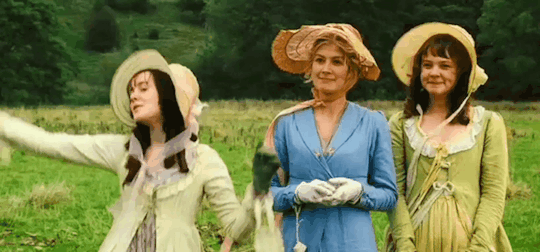
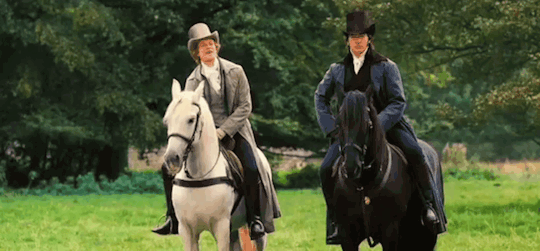
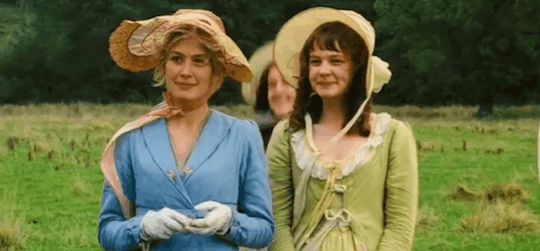





Pride and prejudice (2005)
dir. joe wright
#pride and prejudice#pride and prejudice 2005#jane austen#costume drama#elizabeth bennet#mr darcy#jane bennet#mr bingley#mr wickham#lydia bennet#kitty bennet#keira knightley#matthew macfadyen#rosamund pike#simon woods#rupert friend#carey mulligan#jena malone#my gifs#mine
217 notes
·
View notes
Text
one thing I love about pride and prejudice is that wickham marrying lydia is never portrayed as a "well they deserve each other" situation. even while lydia is loud-mouthed and arrogant and conceited the book still makes clear that she's young and naive about wickham's intent and her running off to marry him is consistently portrayed from elizabeth's point of view as an awful thing. the "joy" and relief surrounding the confirmation of their marriage comes from the fact that it was the only way the situation could have ended in a way perceived as "respectable" and not because it was actually a good thing. for all of her flaws and negative character traits lydia is still a teenage girl being manipulated and groomed by a horrible worthless man and the book doesn't shy away from that. thank you miss austen
125 notes
·
View notes
Text

Mrs. Bennet and Lizzie
#and I mean that in the most heartbreaking way#incorrect pride and prejudice quotes#pride and prejudice#the lizzie bennet diaries#pride and prejudice series#fitzwilliam darcy#lizzie bennet#pride and prejudice 2005#pride and prejudice 1995#elizabeth bennet#pride and prejudice (2005)#charles bingley#jane austen#bing lee#jane bennet#lydia bennet#george wickham#incorrect jane austen#incorrect emma quotes#william darcy#tiktok#one day I’ll write an essay about the dichotomy of Mrs bennet and Lizzie#they are just#such a heartbreaking pair
714 notes
·
View notes
Text
Death comes to Pemberley is now on Netflix! Starring Jenna Coleman in an amazing and hilarious portrayal as Lydia Wickham!
10 notes
·
View notes
Text
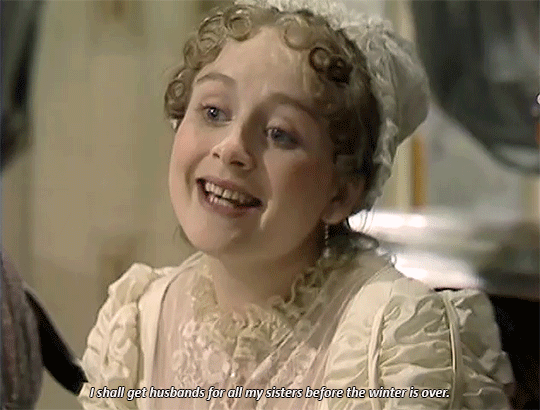
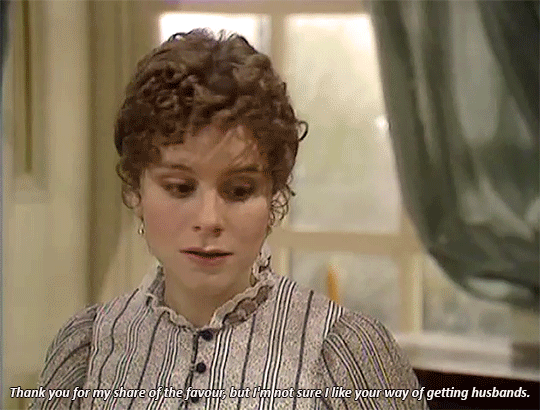
6 notes
·
View notes
Text
I cannot tell you how much it does my head in that one of the key figures in Britain's secret service during the Napoleonic Wars was named Wickham. I read a sentence like "Wickham's secret service expenditure for the first six months of 1800 for paying agencies, agents and the armies of Pichegru and Willot amounted to £3,682,520" and my brain like:

...THIS GUY????
#jane austen#pride and prejudice#ngl george wickham would make a great spy#send that bastard to switzerland to scheme with austrians and french royalists#lydia would have a great time and never question where the money was coming from#oh man french spies trying to seduce lydia assuming she knows something#the farce writes itself lol
52 notes
·
View notes
Text

Had to make a book cover for a classic book in my illustration class. Had just finished Pride and Prejudice and thought why not!
#my art#digital art#procreate#digital fanart#books and libraries#books#Fanart#pride and prejudice#pride and prejudice fanart#mr darcy#elizabeth bennet#jane austen#jane bennet#mr bingley#mary bennet#lydia bennet#kitty bennet#mr collins#george wickham#charlotte lucas
34 notes
·
View notes
Text
I've been thinking of the idea that Jane Austen might have been partly inspired to create Elizabeth and Darcy in Pride and Prejudice by Beatrice and Benedick in Much Ado About Nothing.
@anghraine has posted repeatedly about how P&P can almost be read as a then-modernized retelling of Much Ado, like Clueless is to Emma. Not only because of the Beatrice and Benedick/Elizabeth and Darcy parallels, but other details and character parallels too.
If Austen really was inspired by Shakespeare in this case, then I think she deserves praise for one thing that isn't often mentioned: that in writing her Beatrice and Benedick-like couple, she also wrote counterparts of Hero and Claudio, but she handled them in a way that's much less... divisive (to put it nicely) than the always-difficult Hero/Claudio storyline. Namely by dividing Hero and Claudio's role in the plot between two couples: Jane/Bingley and Lydia/Wickham.
The parallel between Jane and Hero is more obvious, since Jane is Elizabeth's sweet, innocent, most beloved family member just like Hero is to Beatrice, and since like Hero, she temporarily loses the man she loves because he's led to misunderstand her, which makes Elizabeth, like Beatrice, beside herself with rage. (If she could, Elizabeth probably would eat Darcy's heart in the marketplace after she learns he convinced Bingley to leave.) But instead of being melodramatically tricked into thinking Jane is sleeping with another man, Bingley is only led to think she likes him as a casual acquaintance but no more, and instead of taking her to the altar only to publicly shame and reject her (which would be a ridiculous thing to do for the mere "crime" of not feeling romantic love), he just quietly leaves the neighborhood without proposing or confessing his love to her, and without realizing the pain it causes her. This makes it much easier to root for Bingley to reunite with Jane and finally marry her than it is to feel the same way about Claudio.
But of course Hero's public shaming does more than break her heart: it also threatens to ruin her reputation forever, and her family's too. Austen also places her heroine's family in this type of danger, and just like Shakespeare did with Benedick, she has Darcy's efforts to set things right be the final stroke that brings the two formerly-battling love interests together as a couple. But thankfully, instead of tainting Jane and Bingley's sweet little romance by having them be the source of the near-disgrace, she has Lydia run off with Wickham. Effectively, her solution is "What if Beatrice and Hero had another young female relative, and instead of tricking Claudio, Don John straight-up seduced the third girl and that was the cause of the family's shame?" And instead of challenging Wickham to a duel, a la Benedick with Claudio, Darcy simply pays him off to marry Lydia: a choice that's telling about the difference in time, place, and genre between Austen's realistic, satirical portrayal of Georgian England and Shakespeare's portrayal of Renaissance Italy. (Austen furthers this point when Mrs. Bennet convinces herself that Mr. Bennet will duel with Wickham over Lydia's honor and panics at the thought, only to seem disappointed when he doesn't.)
I don't know if Austen consciously drew inspiration from Much Ado when she wrote Pride and Prejudice or not, but if she did, she made some clever character changes that suit the differences between a slice-of-life Georgian novel and a Shakespearean stage comedy.
#pride and prejudice#much ado about nothing#jane austen#william shakespeare#elizabeth bennet#beatrice#fitzwilliam darcy#benedick#jane bennet#lydia bennet#hero#charles bingley#george wickham#claudio#don john#comparison
1K notes
·
View notes